
Insights & Tips for Educators & Therapists
Gain valuable insights and practical tips to support your work as an educator, speech-language pathologist, or special education professional. Connect with a global community, explore innovative strategies, and stay informed with the latest trends in education and therapy.
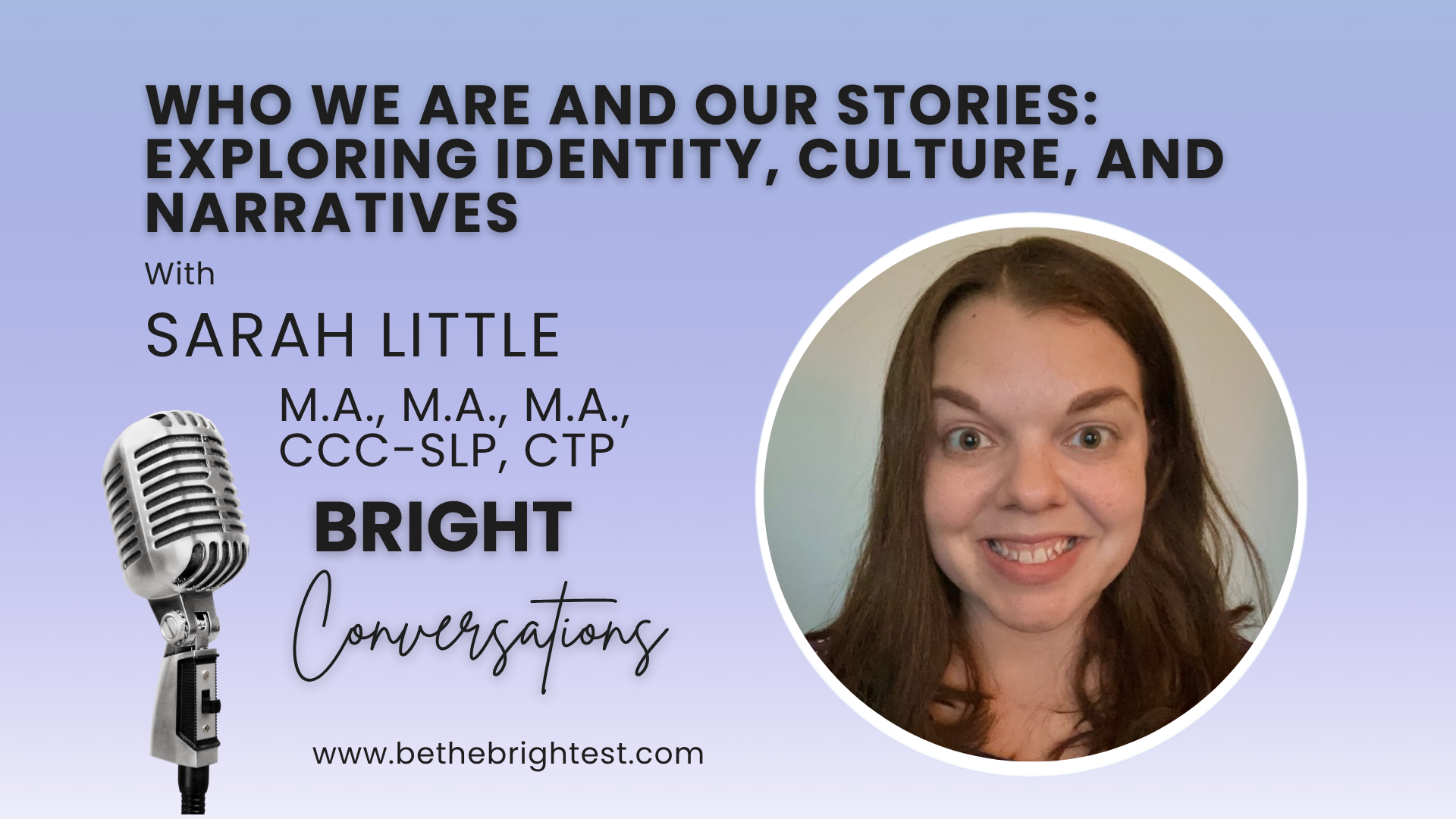
Who We Are and Our Stories: Exploring Identity, Culture, and Narratives
Identity is at the heart of how we communicate, learn, and connect. In this episode of Bright Conversations, bilingual SLP Sarah Little joins host Shontaye Glover-Jones to explore the intersections of culture, narrative development, and self-expression. If you’re seeking practical ways to create more inclusive, identity-affirming spaces for children, this conversation is a powerful place to start.
READ MORE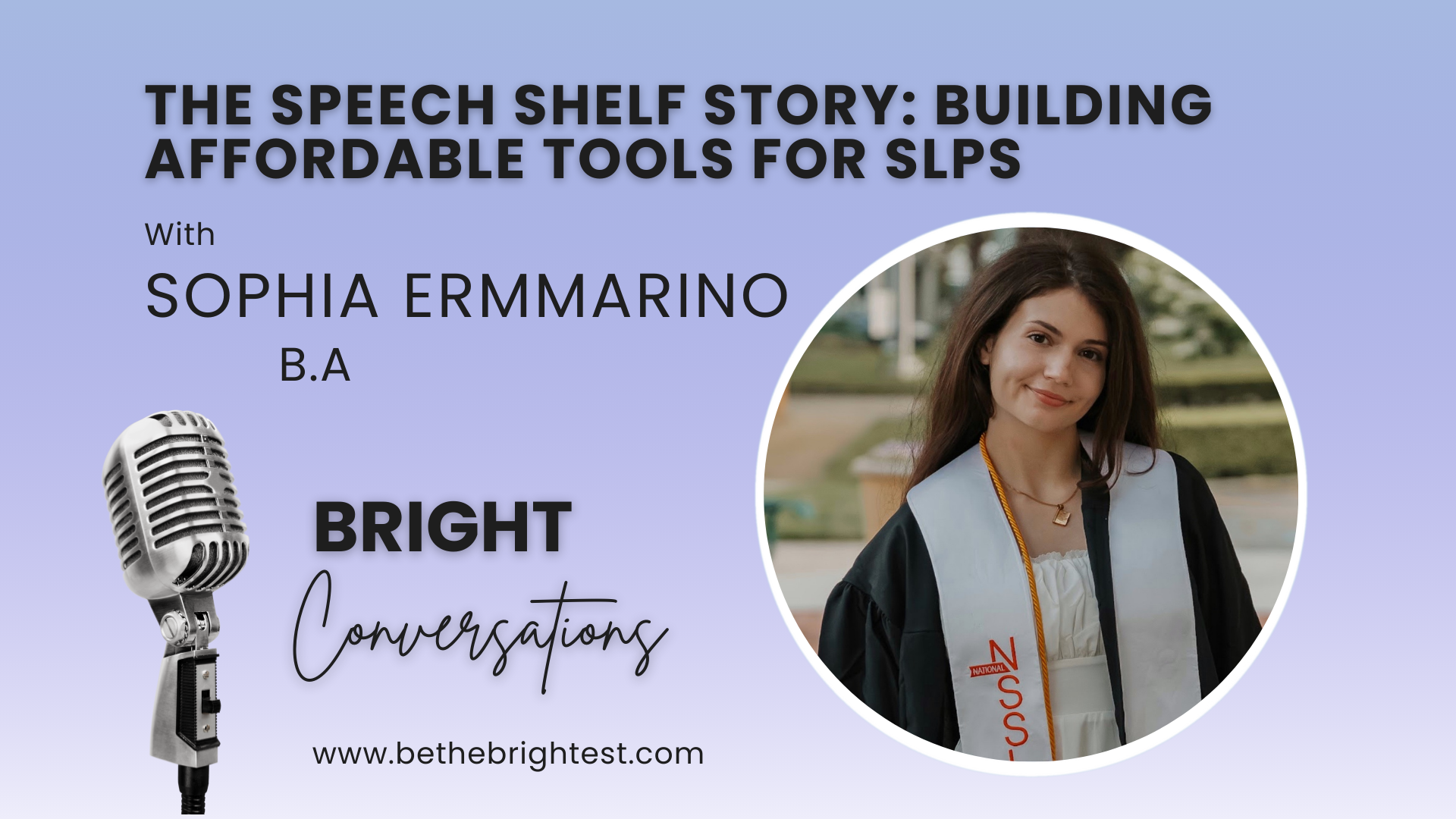
The Speech Shelf Story: Building Affordable Tools for SLPs
Becoming an SLP is expensive—far more than most students expect. In this episode of Bright Conversations, host Shontaye Glover-Jones and guest Sophia Ermmarino unpack the hidden costs of SLP education, the pressures placed on student clinicians, and why affordability and access matter now more than ever. If you're committed to a more equitable and transparent future for our field, this conversation is a must-listen.
READ MORE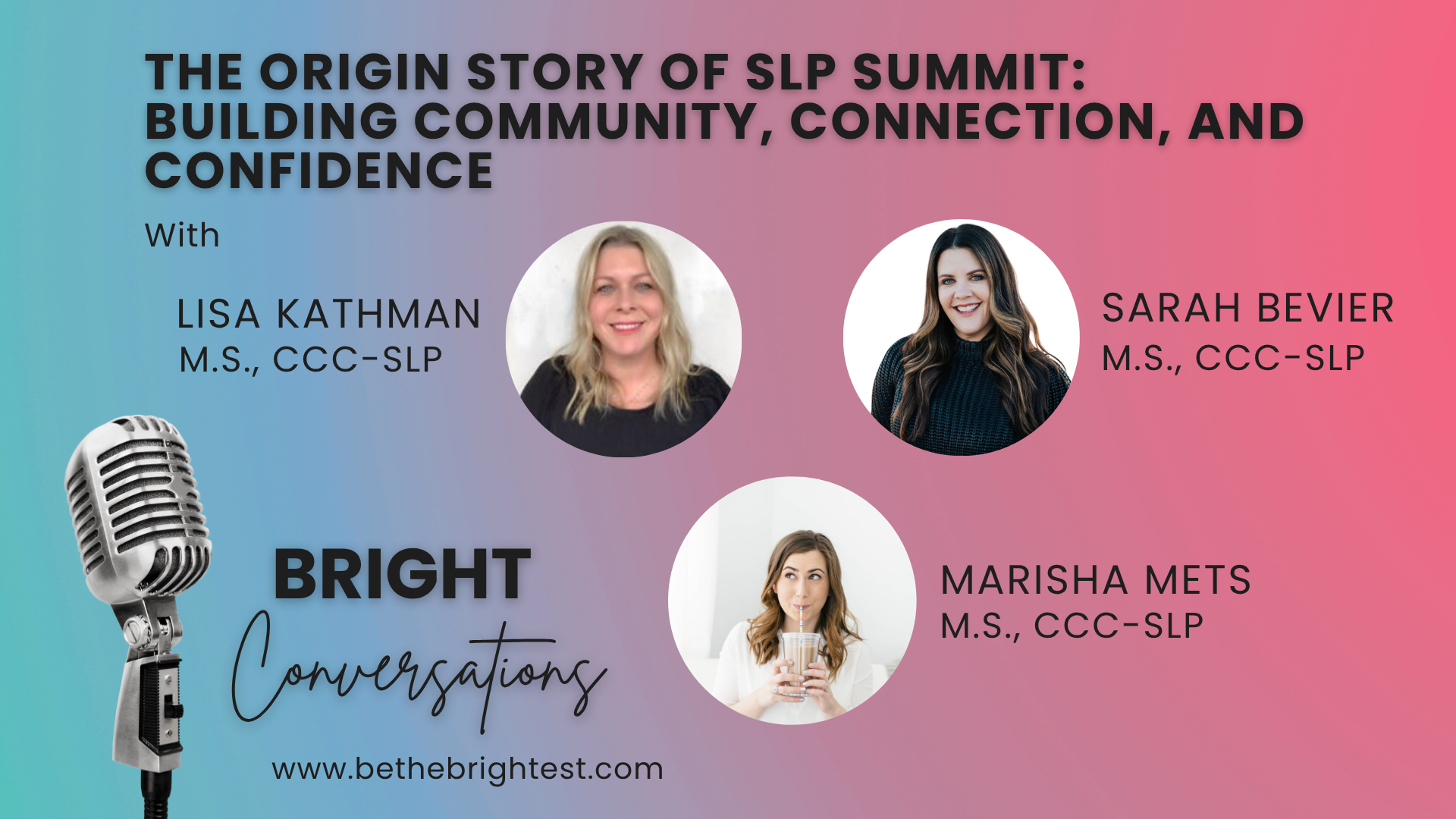
The Origin Story of SLP Summit: Building Community, Connection, and Confidence
In this special edition of Bright Conversations, Shontaye Glover-Jones welcomes the brilliant minds behind one of the most beloved professional development events for SLPs — SLP Summit. Now entering its ninth year, the Summit has become a trusted staple for speech-language pathologists seeking community, clarity, and career-sustaining CEUs. You’ll hear from Lisa Kathman and Sarah Bevier, co-founders of SLP Toolkit, and Marisha Mets, founder of SLP Now, as they share the origin story of SLP Summit. From humble beginnings to a massive community movement, the trio opens up about what inspired the event, how they’ve grown it over nearly a decade, and why accessibility, affordability, and impact remain at its core. Whether you’ve attended every year or are brand new to the SLP Summit community, this episode offers a behind-the-scenes look at the passion, purpose, and people powering the event.
READ MORE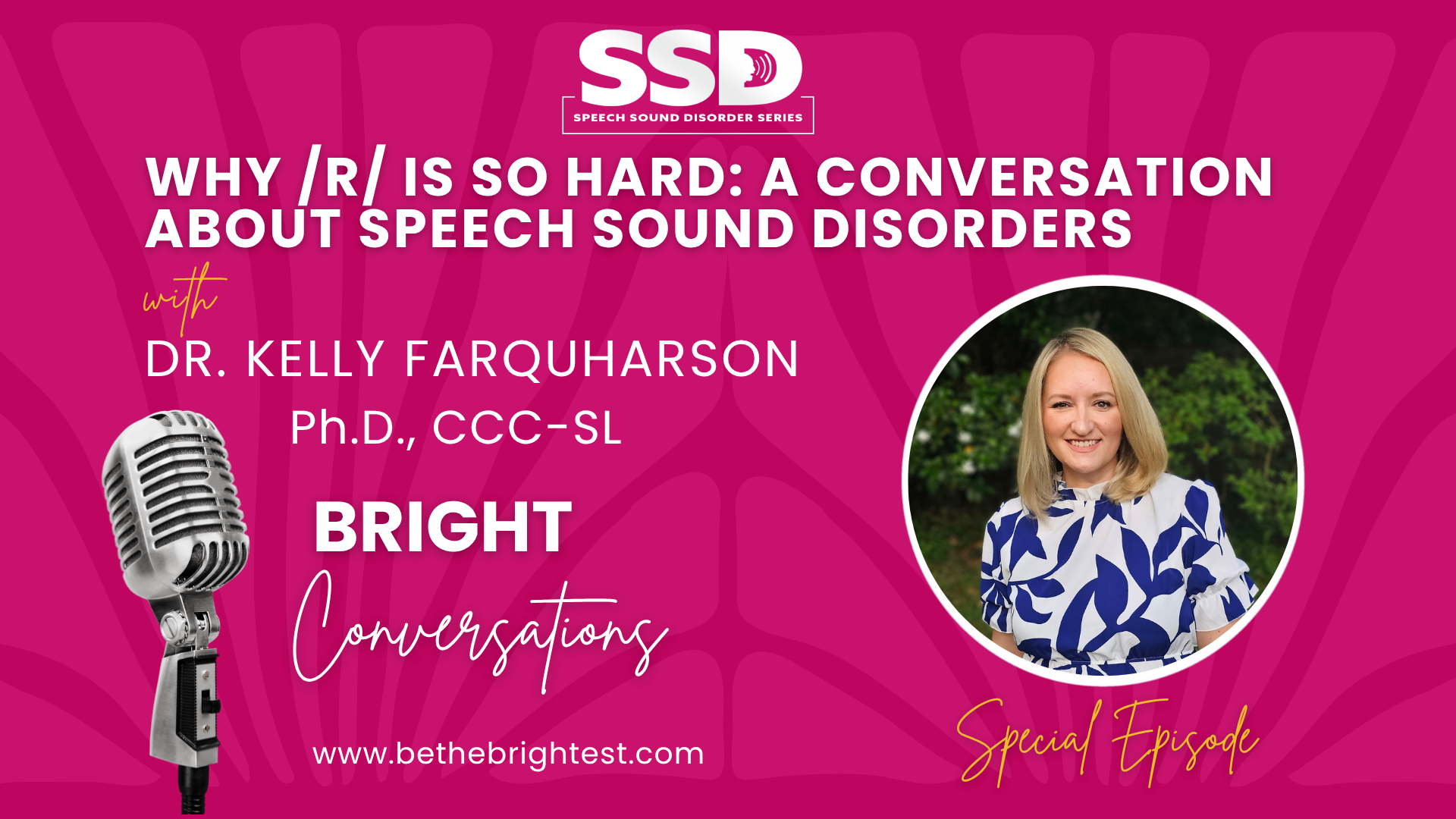
Why /r/ Is So Hard: A Conversation About Speech Sound Disorders with Dr. Kelly Farquharson
Why is the /r/ sound so challenging for so many students—and the SLPs who support them? In this episode of Bright Conversations, Dr. Kelly Farquharson breaks down the science behind speech sound disorders, shares practical strategies for more effective intervention, and highlights why early, contextualized support matters. If you’re looking to build confidence and clarity in treating complex speech sounds, this episode is a must-listen.
READ MORE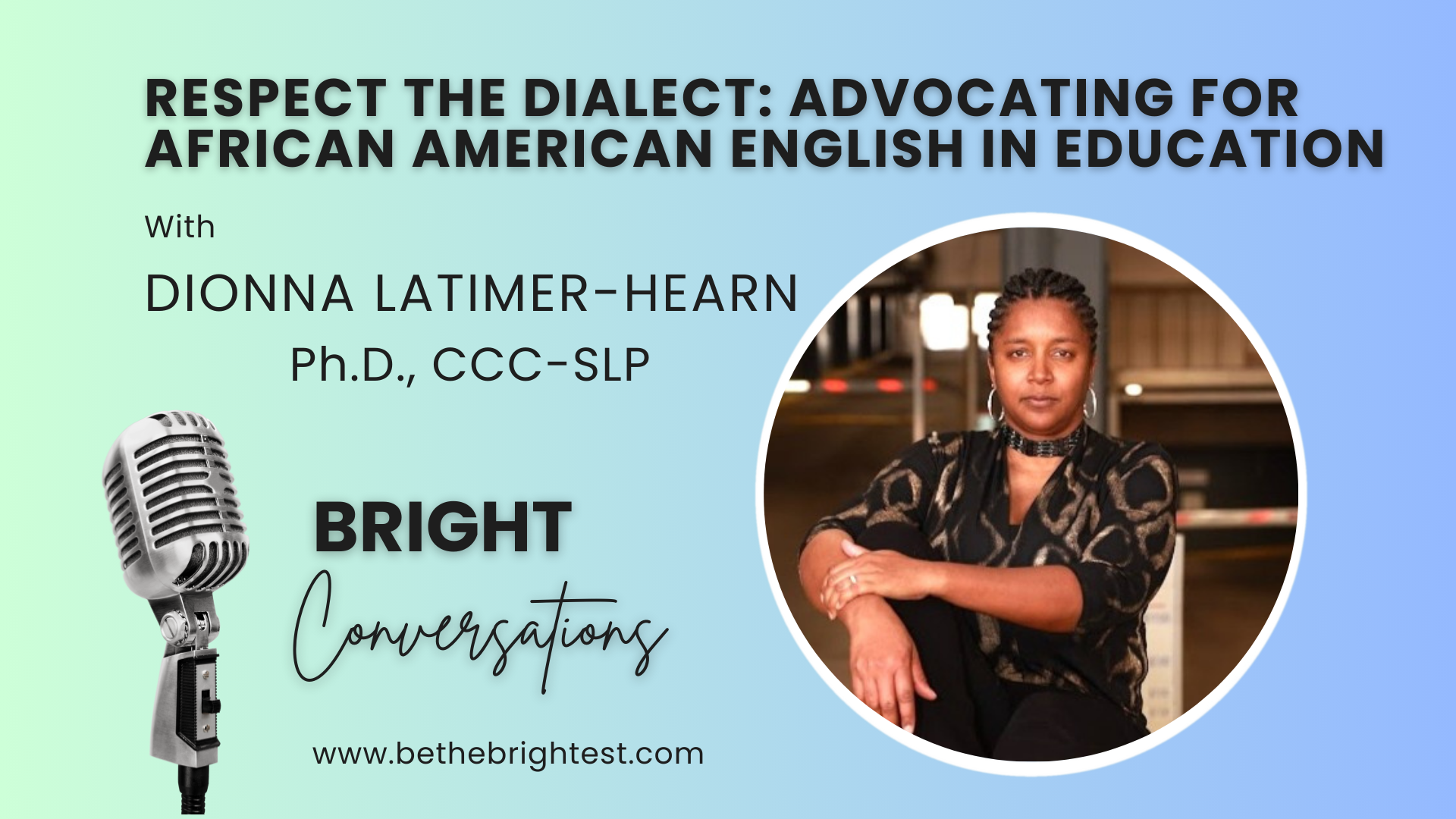
Respect the Dialect: Advocating for African American English in Education
Dr. Dionna Latimer Hearn discussed African American English (AAE) as a rule-governed language and how it intersects with educational equity. The course explored what it means to respect dialects other than Standard American English and offered a roadmap for unlearning deficit-based frameworks. Participants were given resources to embrace culturally and linguistically affirming practices.
READ MORE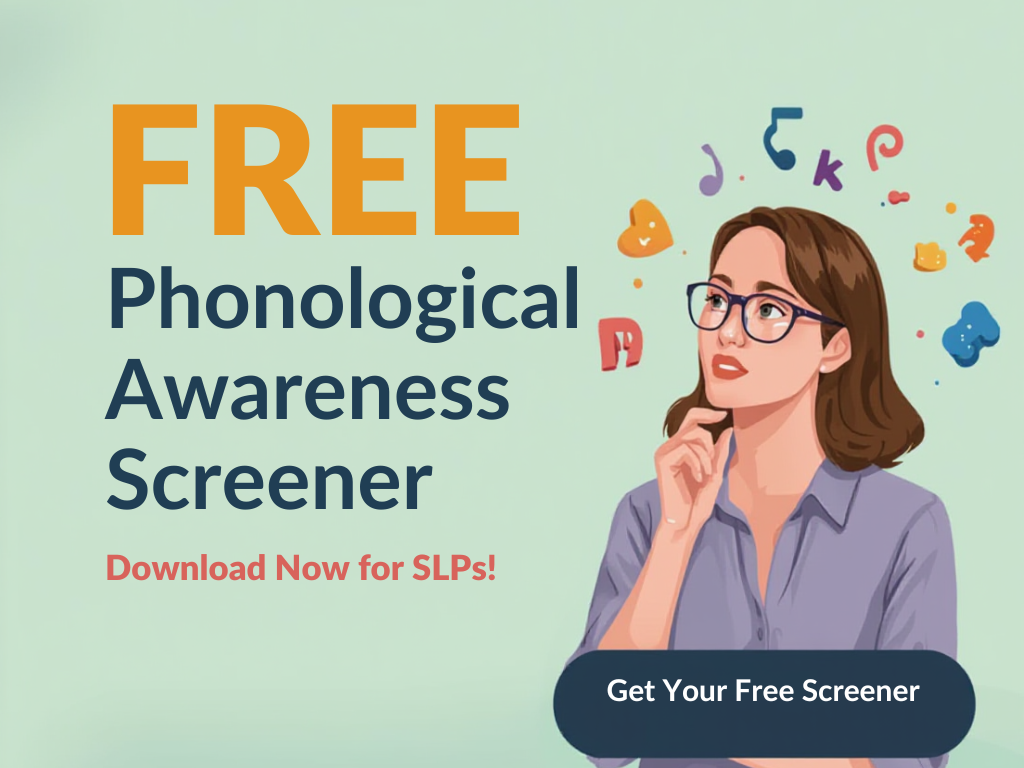
Free Phonological Awareness Screener for SLPs
Download our free phonological awareness screener for SLPs—designed to identify strengths and areas for intervention in children ages 4–8.
READ MORE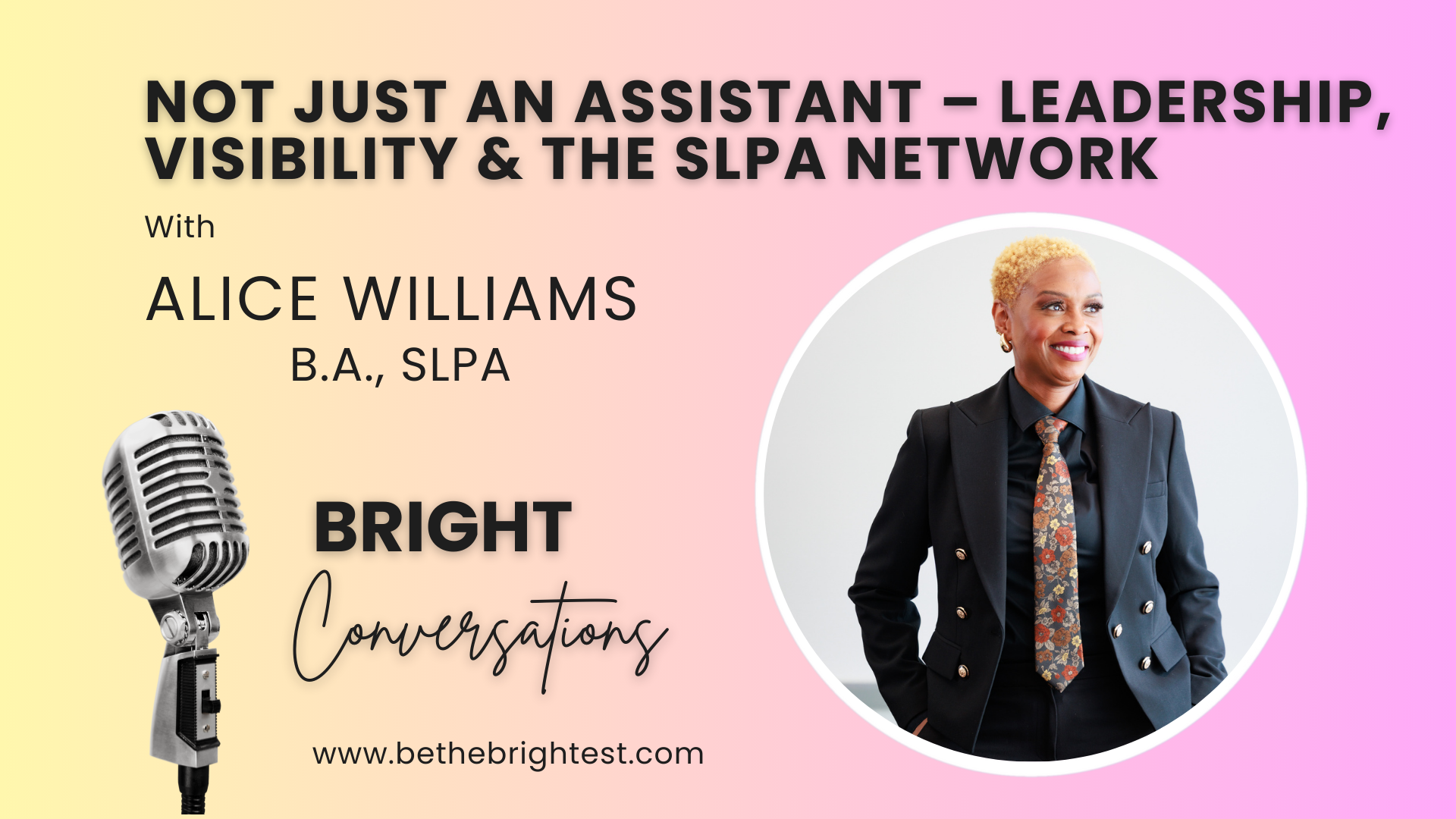
Not Just an Assistant – Leadership, Visibility & The SLPA Network
In this inspiring episode, Shontaye and Sarah sit down with Alice Williams, a nationally recognized Speech-Language Pathology Assistant (SLPA), entrepreneur, and founder of The SLPA Network. With over seven years in the field, Alice has become a driving force for leadership, equity, and professional development for support personnel in speech-language pathology.
READ MOREJoin Our Email List
Sign up to be the first to know about new events, course launches, exclusive discounts, and practical insights to support your professional growth.
Thank you for subscribing!
Have a great day!